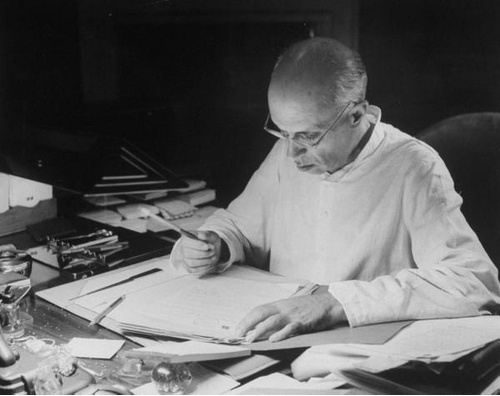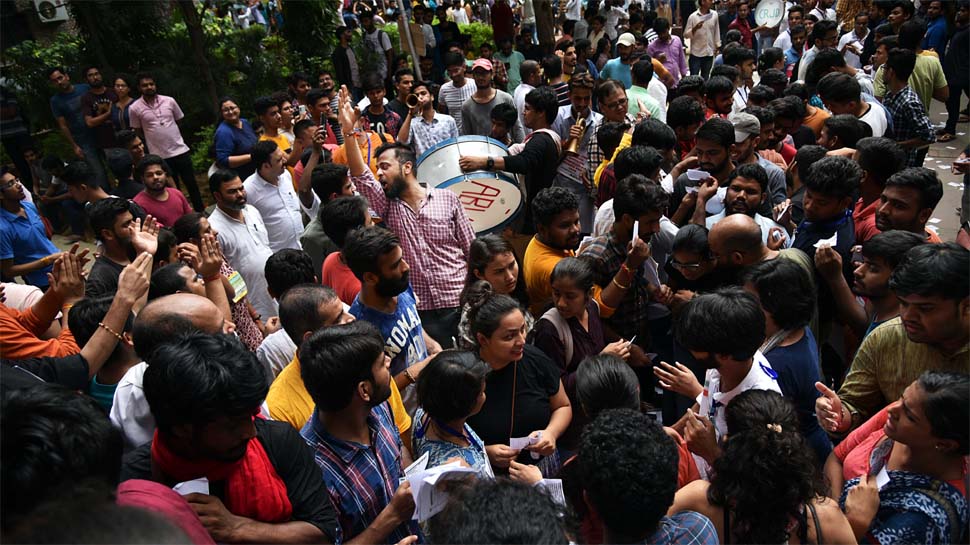From need to obsession technology is fast becoming the centre of our existence from morning till night. Our real words have been taken over by the virtual world and amidst this we are leaving behind many things that were once considered precious for and unique to the human civilization. Can there really be a way out?
Amaya Mathur is a Theater Activist based in Pune.

When one grows up in a third world country especially one where traditionally held values and ideals are still considered of utmost importance, one finds it increasingly difficult to negotiate with one’s dreams of an alternative career if the family or the peer group is conservative at heart.
Yes, we are passing through a unique historical trajectory wherein we as a nation are readily adopting the values of a neo-liberal society that looks at increased consumption patterns, people’s growing purchasing powers, and their enhanced used of gadgets and technology as broad indicators of ‘development’ but at the mental or cognitive level still finds it difficult to embrace the values of freedom, equality, open-mindedness and life choices that look beyond the utilitarian or conventional parameters.
It is paradoxical that we live at a time where economically we are moving towards neo-liberalism and mentally we are fixated with feudal, orthodox values. In a situation such as this it is not surprising that the regular career choices are those that fetch money, stability and respectability- in other words it refers to those vocations that can promise one quick settlement and easy money. In a country like India there is a huge population and a scarcity of jobs, we cannot entirely blame our parents for compelling us to choose the most conventional vocations especially government jobs or high paying corporate jobs.
A huge section of the youth in India is trained and brought up with the socialization that the ultimate goal of their life is to get into the public/corporate sector, get settled with a wife, a car and an apartment in a posh locale and then to be able to have the sufficient purchasing power to ‘consume’ and maintain the desired lifestyle. Weekends are then transformed into days where complete madness and stress are realised in the form of extreme partying and alcoholism. Extensive hours of work, high-end pay packages, constricted world views and no alternative mediums of self-expression have easily turned a large part of our youth into money making machines that run on alcohol and shopping!
I am convinced that such a way of looking at our lives not only transforms our being into a mechanized, soulless machine but also produces stress, disenchantment, alienation and an utter sense of meaninglessness. It is alarming that so many young people in India are now victims of stress and suicide, despite the apparent comforts of life and a success rate very early in life. Social networking obsession, the tremendous reliance on approval on online sites and the virtual world of friends are actually denying one the space and time to experience the reality and beauty of life’ offline’.
Be it in metros, the streets, the malls, the lecture hall or even on the dining table with one’s family and friends- there are hardly any moments when we see ourselves without the mobile, or listen to the other person without even one’s checking for a new message or update. The idea of the present moment is being so easily sacrificed each day that it is no wonder that real bonds and friendships are suffering.
As pedagogues what then should be our role? Can we evolve mechanisms that allow children to see how technology is a human invention and not the other way around? How can we learn to collectively use technology meaningfully and not be handicapped by it? These are questions that we must address and cannot afford to neglect any further. After all, we must understand that extreme obsession causes dependence and this can by no means be considered fruitful. When the first rays of the sun fall on the dew drop on the leaf let us have the courage to see it without the hurry of clicking and putting it on Snapchat.
Let us have the strength to watch a wonderful film or relish a sumptuous meal without the anxiety of updating about in Facebook, let us for once drop by the visit our old grandparents rather than sending them an occasional watt Sapp text. There is immense beauty and happiness around us, if only we knew how to relish and realise it. The challenge before us is immense and we must begin with acknowledging it.













